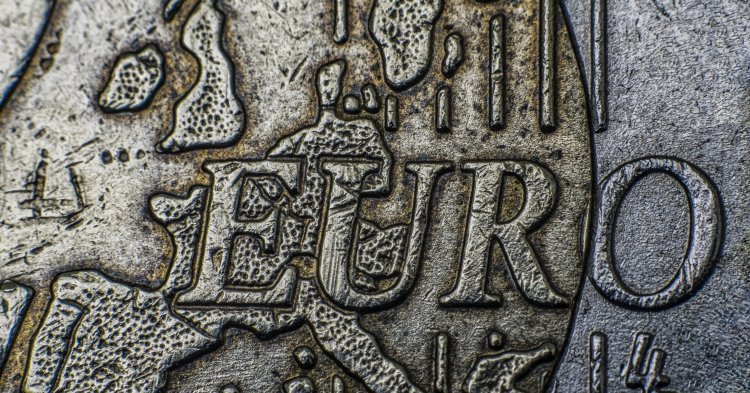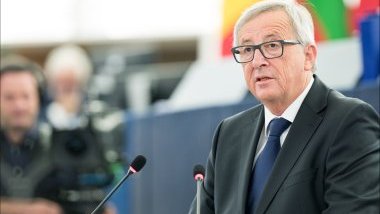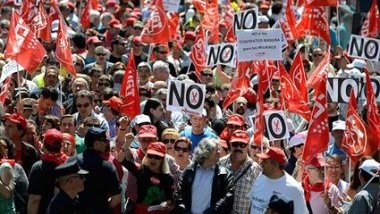The Crisis and its Effects
After the outbreak and at the peak of the Euro-Crisis the focus was put on austerity measures. These policies at best only had a moderate record of success. Countries like Portugal, Ireland or Spain managed to decrease their annual deficits, since their economies started to grow again after long years of recession. To what extent this upswing was caused by the mentioned austerity policies is very uncertain. The return of economic growth can as well be seen as a consequence of the usual economic cycle, or the interest rate policy of the European Central Bank. The argument about the economic success of the austerity policy is a fruitless debate, because it is ignoring an essential issue - the living standards of the ordinary citizens, that the policy of spending cuts and raising taxes has worsened.
Juncker sets new Priorities
Already during his time as the head of the Eurogroup Jean-Claude Juncker stood up for civilised communication and reconciliation of interests between Euro-countries. In the past he repeatedly made clear how important budgetary discipline and structural reforms are. At the same time he complained that investments in the countries affected by the crisis was never part of the strategy of the money lenders. Their approach was like: A lot of stick, but no carrot. Now as President of the Commission Juncker tries to fix this imbalance. With the new European Fund for Strategic Investments (EFSI), which was expected to start its work this autumn, the Commission in cooperation with the European Investment Bank wants to initiate future-oriented investments. In theory at least 315 billion Euros of investment capital should be activated, with only a small amount coming from public funds, due to the bad public budget situation. The biggest part should be contributed by private investors that should mostly be free from the financial risks as incentive, in contrast to the public investors.
One major point of criticism concerns this kind of rate of return guarantee towards private investors at taxpayers’ risk. But actually this strategy neatly aims towards an essential problem in Europe. Never before in history has the amount of private wealth in Europe been bigger, the public debt been higher and the private investments in comparison been lower. The overall situation pictures a menacing imbalance, the state’s abilities to act are hobbled and real economic growth is weakened. The biggest part of the private wealth is feeding volatile financial markets, instead of creating jobs in the real economy, where money is much needed. The idea behind the investment fund is to try to break up exactly this situation to initiate more private investment in real value.
Greek special treatment
The investment strategy consists of more than just the new fund, in regional support policies Juncker wants to unconventionally break new grounds. As part of his approach to keep Greece within the Eurozone, Juncker promised more European investments for the stricken economy to Alexis Tsipras. Now he tries to keep his promise, despite the discontent of some politicians, who blame him of again exceeding his authority. The guidelines on the distribution of grants actually demand an appropriate financial contribution of the member state to fund sponsored projects. Juncker wants to suspend this rule for Greece for now and backdated for the period between 2007 till 2013. Greece should be able to benefit from the European funding, despite its bad budgetary situation.
All of Europe needs investment
Not only the countries affected by the crisis need investments. The German export surpluses, which often are seen as a success, can just as well be interpreted as import deficits. Not a few economists share the opinion, that more investments in Germany could partly weaken this imbalance in foreign trade. Not only the south, but the centre of Europe is desperately in need of investment. There is a lack of financial resources to maintain or renew the good infrastructure, or to support innovative research. Besides the countries of the Eurozone cannot simply copy the German export surplus strategy. When everybody exports, but nobody wants to import, this cannot lead to a functional European market.
The economic cycle is defined by periods of up- and downswing. Strong long-term economic recessions in the past have often been caused by financial crises. Strong economic booms have often been a result of an improvement of economic framework conditions due to structural reforms or an improvement of infrastructure. Economic growth as well benefits from innovation in industry and new technologies. Innovation and infrastructure are directly dependent on investments. Investments are no luxury, but an essential for the preservation of prosperity in a changing world and are necessary for future economic growth and respectively stable public budgets.





Follow the comments: |
|
